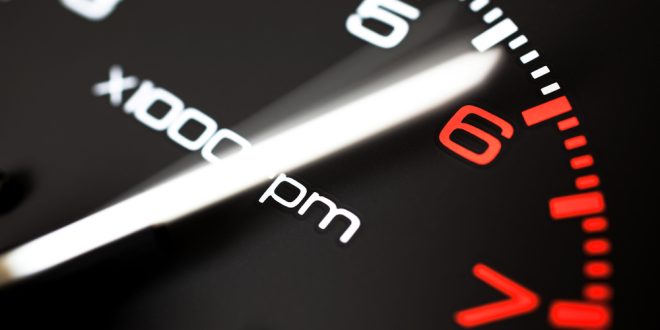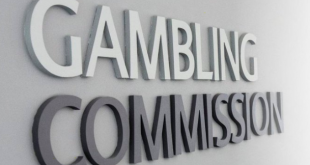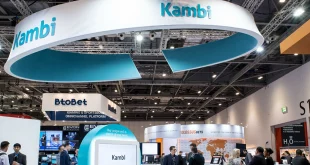The Brazilian Ministry of Finance has taken the latest step towards a full-scale regulated market with the publication of an ordinance that opens up the sports betting and online gaming application process for operators.
VIXIO, a regulatory technology provider, has estimated that the South American country with a population of over 200 million people could potentially surpass some of the largest markets out there.
James Kilsby, Vice President Americas and Chief Analyst GP at VIXIO, sat down with SBC News to discuss the scope of this prediction about the most anticipated emerging market in Latin America.

SBC News: VIXIO has calculated a revenue projection of $3.7bn-to-$5bn for Brazil’s new gambling market within a five-year period. How has that revenue figure been estimated?
James Kilsby: Our Brazilian forecasts are calculated on the basis of projected online gross gambling revenue (GGR) as a percentage of gross domestic product (GDP) and an assumed typical ramp-up pattern of a regulated market from year one to year five. This is calculated using international benchmarks.
In the latest update to our forecasts, we upgraded our Brazilian estimates and assumed a steadier Y1 to Y5 ramp-up than previously, following the enactment of Brazil’s new betting and online gaming law in December 2023, which introduced a somewhat more benign tax and regulatory framework than we first assumed, and a reappraisal of the existing scale of the Brazilian grey market.
Estimates as to the size of the unregulated market in Brazil vary widely, but it certainly can be presumed to already amount to several billion dollars per year in GGR terms. Much will now depend on what proportion of this will be channelled into the regulated market, based on the number of operators that obtain a licence and how successful the government is with regard to enforcement aimed at offshore companies.
SBCN: Previously Brazil’s Ministry of Finance has stipulated that +130 businesses have detailed interest in applying for licences. Yet, as launch approaches, how many businesses does VIXIO see applying for Bets licences?
JK: A market served by 130+ licensed operators would establish Brazil as among the most competitive, if not the most competitive, regulated market for online gambling globally. It should be noted that additional companies beyond those 134 that registered their interest with the Ministry of Finance last year may also step forward to apply for an accreditation, since that registration is not a prerequisite to apply or receive the expedited review under the Secretariat of Prizes and Bets’ recent licensing ordinance.
Ultimately some of those companies may be unlikely to apply, however. At the time of the initial registration-of-interest process, Brazil’s legislation had yet to be approved by the Senate, with new licensing requirements later added to the final version of the law. Some companies may reconsider based on the share capital and other licensing criteria established by the SPA ordinance, or the detailed technical requirements for betting systems that have been published.
What we know of the Brazilian regulatory regime points to a market with high initial barriers to entry as well as complex compliance requirements, which may be burdensome for smaller operators.
At the same time, it would not be a surprise to see new partnerships or acquisitions involving some of those 134 operators who registered their interest independently. Such partnerships may hinge, in part, on the still unanswered question of what constitutes “a Brazilian” to meet the requirement for all operators to be at least 20% owned by a Brazilian.
This is a pivotal policy question as it will determine whether international operators will be able to apply on their own, or if they will need to partner with a Brazilian investor or company to qualify. It should also be noted that operators are eligible to deploy up to three brands or skins under a licence.
SBCN: The procedures to launch the Bets market are yet to be determined – in your view, how should operators expect the market to roll out?
JK: Based on the SPA’s recent licensing ordinance, we can expect to see a universal launch or go-live date for those fixed-odds betting operators that are successful in applying for a licence during the initial 90-day window following the ordinance’s publication. The ordinance specifies that authorisations will also be published on the same date, which indicates that operators will be able to launch at the same time, likely in December, regardless of when they submit their application during the 90-day window.
There is also a transition period for operators to remain active in the Brazilian market through the end of 2024 while licences are being processed, so current operators will not see disruption to their current businesses during the licensing process and whilst they prepare to certify their offerings as being compliant with Brazil’s technical requirements shortly after their licences are approved.
SBCN: From VIXIO’s perspective, what will be the toughest element of the first phase of Brazil’s Bets market launch?
JK: One challenge for operators is having to move forward with a licensing application with haste due to the clear advantages of submitting an application with the 90-day window rather than waiting and having to switch off current operations from the start of January 2025, while at the same time not having a full picture of what the Brazilian regulatory regime will ultimately entail.
Future regulatory ordinances and other documents should provide greater clarity on critical issues such as the requirement to have a “Brazilian” owning at least 20% of the operator’s share capital, the scope of permissible online casino games, and which forms of bonuses will be allowed through loyalty programs. All of those questions, among others, will be fundamental to informing operators’ strategies for the Brazilian market.
SBCN: Are you anticipating early market entry to be easier for operators than securing a licence once the market has settled?
JK: It may not be any easier for operators to obtain a licence who apply earlier as opposed to those who may wait for the market to settle, but operators are certainly heavily incentivised to step forward within the next few months, and those that do so will gain a critical first-mover advantage in the regulated market.
Per the SPA’s licensing ordinance, operators who apply within 90 days of the publication of the ordinance (by August 20) are guaranteed to receive a decision on the application within 180 days – which is November 19 – and then be able to have their licence approved prior to the end of the year. This will mean those operators should be able to launch before new legal restrictions applicable to unlicensed gambling and payment processing take formal effect on January 1, 2025.
Operators that do not apply within the 90-day window should receive an answer on their application within 150 days, or potentially not until at least February 2025. Review of licence applications by the Ministry of Sport may extend these timelines even further, meaning operators that do not apply before August 20 will likely have to curtail any existing operations in Brazil for a period of time from the start of 2025, at a time when initial licensees will be launching their regulated platforms and pushing to gain early market share.
SBCN: How thin of a line will operators be walking when it comes to marketing their services in the newly regulated space?
JK: While there are likely to be some additional rules clarified through forthcoming ordinances, Brazil’s regulatory regime is not overly restrictive when it comes to advertising and licensed operators will generally be able to advertise their products widely, subject to established international best practices that have now been incorporated into the advertising code applied by advertising self-regulatory body CONAR. For instance, this means that operators will not be able to advertise to minors, offend the country’s beliefs or traditions, or present gambling as socially attractive or a solution to financial problems.
There are a few areas of uncertainty, however. One is the prohibition on the offering of bonuses or other incentives as a means of acquiring new customers; that is a difference from the current unregulated market and means operators will have to pursue different marketing strategies in order to obtain new players once the new regulatory regime takes full effect.
Another risk that we have seen in many other markets, like Europe, Australia, parts of North America and to a degree in Colombia, is a tendency for policymakers to impose tougher restrictions on advertising some time after the launch of the regulated market, informed by political, public and media pushback against the volume of ads for sports betting in particular.
As this is such a clear global trend it cannot be ruled out as a future regulatory risk in Brazil, not least because stricter limits on advertising was a central point of debate as the new legislation was being considered by the Senate last year.









